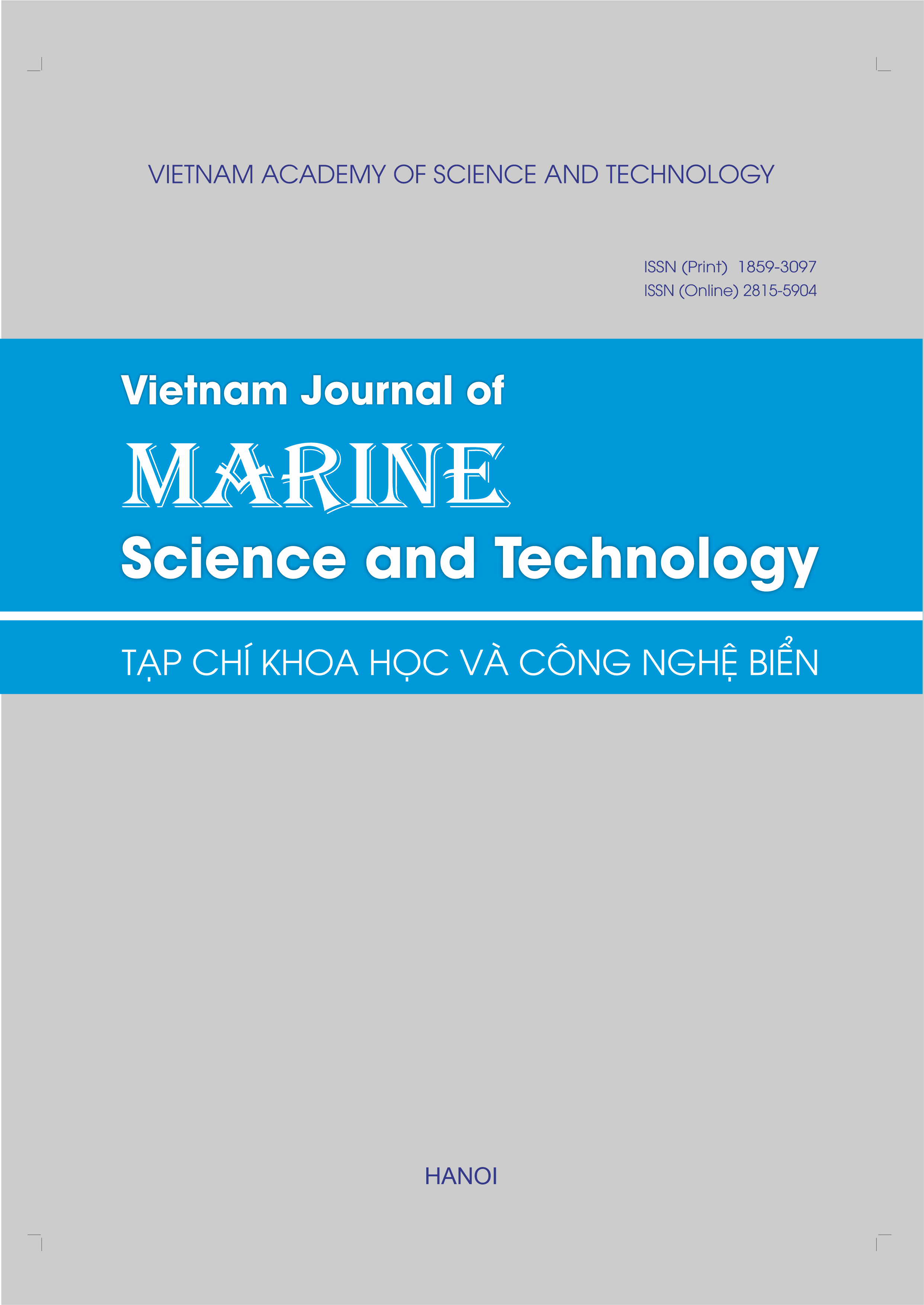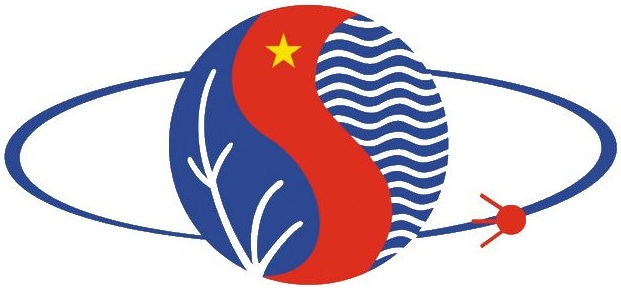Assessing coral reef resilience for sustainable resource management (case study in Hon La island, Quang Binh province, Vietnam)
Author affiliations
DOI:
https://doi.org/10.15625/1859-3097/19/3/13516Keywords:
Coral reefs, resilience, indicators, sustainable resource management, Hon La island.Abstract
Coral reefs play a crucial role in providing ecosystem services for the coastal communities. However, the resilience of coral reefs is quickly degraded due to both global and local stressors, including climate change and marine pollution. Hon La island in Quang Binh province, Vietnam is one of the most important coral reef ecosystems. However, this area was heavily influenced by human activities and marine pollution. Therefore, the present study is implemented in order to evaluate the resilience of coral reefs in Hon La island for proposing sustainable development solutions. The proposed indicator framework consisted of three dimensions (coral diversity, biodiversity and environment), containing 26 indicators that potentially provided the quantified methods for decision makers to inform a range of management strategies in protecting coral reefs and using natural resources effectively. Results showed that coral reefs in Hon La island had a low resilient index, about 0.369 because of a degradation of diversity, seawater contaminated by oils and the high turbidity. Several solutions were proposed to enhance the resilience of coral reefs, including the establishment of marine protected areas; integrated management of the coastal zone; rehabilitation of coral reefs and application of co-management models. The theoretical framework from the present study could be potentially applied to evaluate the coral reef resilience in other marine areas in Vietnam with appropriate modification.Downloads
References
Grimsditch, G. D., and Salm, R. V., 2006. Coral reef resilience and resistance to bleaching. IUCN, The World Conservation Union.
McClanahan, T. R., Donner, S. D., Maynard, J. A., MacNeil, M. A., Graham, N. A. J., Maina, J., Baker, A. C., Alemu I., J. B., Beger, M., Campbell, S. J., Darling, E. S., Eakin, C. M., Heron, S. F., Jupiter, S. D., Lundquist, C. J., McLeod, E., Mumby, P. J., Paddack, M. J., Selig, E. R., and van Woesik, R., 2012. Prioritizing key resilience indicators to support coral reef management in a changing climate. PloS one, 7(8), e42884.
Maynard, J., Wilson, J., Campbell, S., Mangubhai, S., Setiasih, N., Sartin, J., ... and Heron, S., 2012. Assessing coral resilience and bleaching impacts in the Indonesian archipelago. Technical Report to The Nature Conservancy with contributions from Wildlife Conservation Society and Reef Check Foundation Indonesia.
Maynard, J. A., Marshall, P. A., Johnson, J. E., and Harman, S., 2010. Building resilience into practical conservation: identifying local management responses to global climate change in the southern Great Barrier Reef. Coral Reefs, 29(2), 381–391.
Obura, D., 2009. Coral reef resilience assessment of the Nosy Hara marine protected area, Northwest Madagascar. IUCN.
Grimsditch, G. D., Tamelander, J., Mwaura, J., Zavagli, M., Takata, Y., and Gomez, T., 2009. Coral reef resilience assessment of the Pemba channel conservation area, Tanzania. IUCN.
Maynard, J., McKagan, S. C., Johnson, S., Houk, P., Ahmadia, G., Hooidonk, R. V., Harriman, L., and McLeod, E., 2012. Coral reef resilience to climate change in Saipan, CNMI, field-based assessments, and implications for vulnerability and future management.
Nguyen Chu Hoi, 2012. Investing in coastal ecosystems. A Guiding Document for Journalists about the Role and Importance of Coastal Ecosystems.
Ministry of Natural Resources and Environment, 2016. Climate Change and Sea Level Rise Scenarios for Vietnam.
Nguyen Van Tai, 2016. Environmental incident in the central provinces, lessons learned and solutions to protect the environment in the coming time. Environment magazine, 7, 4–7.
Le Doan Dung, 2012. Initial results of hard coral reefs in Hon La - Quang Binh province. Fisheries Research Institute Newsletter, 24, 20–24.
Quang Binh Official Portal, https://www.quangbinh.gov.vn/3cms/gioi-thieu-chung-14532.html [2018/28/12].
Pham Van Huan, 1998. Some characteristics of sea current in the region near the coast of the Central Vietnam. Journal of Science, Natural Sciences, 14(3), 21–26.
Directorate of Fisheries, 2015. Synthesis report of project results I.2, survey on the overall biodiversity of coral reef ecosystems and coastal areas in the sea in Vietnam for sustainable development.
Marshall, P. A., Schuttenberg, H. Z., and West, J. M., 2006. A reef manager’s guide to coral bleaching.
Miththapala, S., 2008. Coral reefs: Coastal Ecosystems Series (Volume 1). Ecosystems and Livelihoods Group Asia, IUCN, Colombo.
Education, M.-H., 2010. Chapter 14 Coral reefs. In Structure and Function of Marine Ecosystems. Pp. 286–308.
Obura, D., and Grimsditch, G., 2009. Resilience assessment of coral reefs: assessment protocol for coral reefs, focusing on coral bleaching and thermal stress. Gland, Switzerland: IUCN.
Pastorok, R. A., and Bilyard, G. R., 1985. Effects of sewage pollution on coral-reef communities. Marine ecology progress series. Oldendorf, 21(1), 175–189.
Jameson, S. C., and Kelty, R. A., 2004. A review of indicators of land-based pollution stress on coral reefs. In Joint EPA/NOAA/USGA/DOI Workshop: Assessing Pollution Stress on Coral Reefs Aug 31–Sept 2 Honolulu, Hawaii.
Kleypas, J. A., and Yates, K. K., 2009. Coral reefs and ocean acidification. Oceanography, 22(4), 108–117.
Ministry of Natural Resources and Environment, 2015. National technical regulation on marine water quality (QCVN 10-MT:2015/BTNMT). Vietnam Ministry of Natural Resources and Environment of The Socialist Republic of Vietnam, Hanoi.
Coral reef alliance, https://coral.org/coral-reefs-101/coral-reef-ecology/what-do-coral-reefs-need-to-survive/ [2018/28/12].
National Aquarium, 2010. Coral Reefs Pre- and Post-Visit Activities Grades 5-8.








